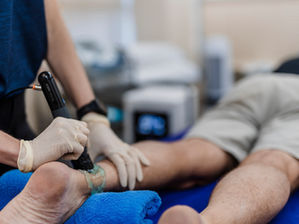Students Dig Deep Into Problem Solving
- Oct 30, 2020
- 3 min read
Updated: Apr 20, 2021

Bishop Tyrrell Anglican College has changed the way it teaches its students.
It’s called a Deep Learning Framework and is designed to teach pupils how to contribute to the common good, address global challenges and flourish in turbulent and complex times, all whilst maintaining their academic learning. It’s all about creating positive problem solvers and global citizens of the future.
Based on the development of six core competencies – creativity, communication, citizenship, critical thinking, character and collaboration – the Deep Learning Framework encourages teachers and the community to stand back, to create the conditions for the learning rather than providing ready-made knowledge so that the students can engage in learning that connects to their own lives and their own passions.
“There’s no denying that 2020 has been a challenging time for everyone, including students, but it has been the right time to introduce the Deep Learning Framework which has enabled students to address specific issues that were exacerbated by COVID-19. Each year group worked on projects that addressed an issue that was important to them,” said Deputy Principal, Tania Lloyd.
The secondary school concentrated on kindness as an issue with years 7 and 8 creating Blessing Bags for the homeless. They made the bags themselves, filled them with donations of clothing and blankets and then distributed them to the homeless. During the peak of the pandemic, second-hand stores were closed, and it was difficult for the homeless to get what they needed to survive the winter months. The students even made facemasks and included them in the bags.
Students in year 4 looked at the issue of inclusion and through a series of activities, developed their understanding and empathy for vision-impaired people. They made a “picture book” for visually impaired children with raised images, different textures and braille.
The year 1 student project, also based on kindness, resulted in The Samaritans being recipients of beautifully decorated boxes full of donations. Students discussed how lucky they were to have family care, food and a roof over their heads.
“They held a Zoom call with The Samaritans to learn about what sort of donations would be required, they wrote letters to send home to parents to gain their support, they created flyers to promote what they were doing, filled the boxes, decorated them and were excited to be able to deliver them,” said Tania.
In Kindergarten, they explored what it meant to be a good citizen and worked on a kindness project that raised money for less advantaged parents so they could buy their children presents. They wrote many thank you cards to lots of different people and made Christmas decorations to sell to raise funds. Kyla in KKP class said that “being a good citizen is about sharing your love with others.”
Tania says that parents and teachers have welcomed the framework.
“It just makes my heart sing when you see children who are normally disengaged from academic learning, discover a passion, something that really excites them. They are learning to be better students and better people. Once they’ve gone through this process, it leads to better learning outcomes overall. They’re learning to learn, and they look forward to it. They don’t want to leave class, or for the project to end.”
The Deep Learning Framework will continue to be a core component of the curriculum at Bishop Tyrrell Anglican College, and it is hoped that students will build on their competencies over the lifetime of their school years, creating good global citizens with critical problem-solving abilities to address the issues of the future.
Words: Liane Morris























































